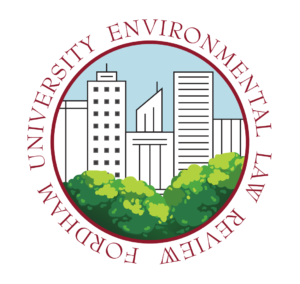Plastic Waste: The End of Plastic Straws?
Plastic pollution is an unceasing environmental issue, as the increased production of plastic products has overwhelmed the world’s ability to handle it. Although the invention of plastic has led to many life-saving devices and equipment, the “throw-away culture” surrounding plastic has caused significant harm. Plastic contains additives that make them stronger, thus extending its lifespan, with some taking up to 400 years to break down. Every year 8 million tons of plastic waste enters the ocean, killing millions of animals. Most of the plastic comes from single-use plastic items, such as straws, and it is nearly impossible to remove plastic waste once it’s in the ocean. Thus, the ever-increasing plastic waste is a great danger to ocean wildlife.
Plastic straws are one of the most widely used plastic products, with hundreds of millions of straws being used daily in the United States alone. Unfortunately, many plastic straws cannot be recycled or reused because of their chemical makeup and are not biodegradable, making them unable to be broken down naturally. One disturbing effect of plastic pollution from straws that is often highlighted by the media is plastic straws harming and killing turtles. Many turtles are injured from straws in the ocean when they are wedged into their noses or accidentally consumed. Consumption of plastic straws gives turtles a false sense of being full, eventually causing them to die of starvation. Plastic in the ocean has been found to cause significant harm to marine animals, a harm that is caused exclusively by humans. Unfortunately, although a substantial effort is used to properly recycle plastic, plastic straws are very difficult to recycle because local authorities do not provide the necessary facilities to do so. Thus, more is needed to reduce plastic straws’ negative impact on the ocean.
Bans, restrictions, and taxes on the use of single-use plastic, like plastic straws, have been put in place to limit the environmental harms they cause. In New York, legislation surrounding the ban on plastic straws is ever-increasing. A new bill passed by New York legislators prohibits New York City restaurants from offering plastic straws to their customers. However, there is a provision in the bill that allows eateries to keep some plastic straws in stock for people who request them in order to accommodate customers with disabilities. Opposition to the bill argues that this legislation is another example of governmental overreach, thereby causing additional costs and inconvenience to businesses and their customers. Others opposed argue that the provision to allow restaurants to have plastic straws in stock contradicts the purpose of the bill and the overall push for a ban on plastic straws. However, legislators feel these steps are necessary to reduce plastic waste and save businesses money in the long run. Council Member Jimmy Van Bramer, sponsor of the “Skip the Stuff” bill, which prohibits restaurants from providing plastic utensils, stated that these legislative measures ultimately save restaurants the expense of buying plastic that most people don’t use while also addressing the negative environmental impacts they impose.
The global campaign against the use of plastic straws has caused many companies to discard them and opt for the distribution of paper ones. Paper straws are more flexible than plastic straws, making them less likely to harm marine animals. Paper straws are also biodegradable, making them easier to be broken down. Some criticize paper straws for not being as eco-friendly as necessary because there is still a chance for small animals to swallow pieces of them. However, paper straws are fully recyclable, and studies show they decompose within two months on land. Therefore, even though there is much more work to be done to improve paper products, there is still evidence that shows the paper straw’s impact on the environment is less harmful than plastic. Ultimately, many hope we are working towards the goal of not using single-use plastic items. However, that venture will take much more time and resources. Until then, smaller changes, such as the distribution of paper straws instead of plastic ones, can at least slow down the disastrous effects of plastic on our environment.

